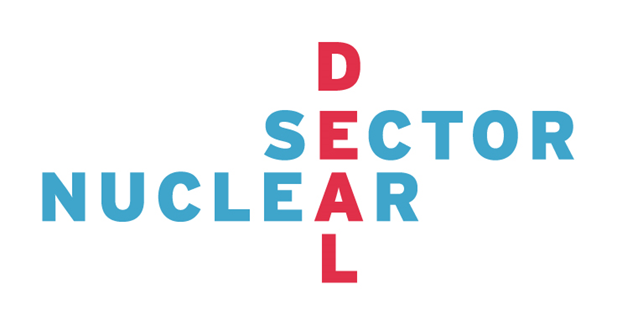A new report titled Unlocking the UK’s Nuclear Hydrogen Economy to Support Net Zero, was just published by the U.K.’s Nuclear Sector Deal’s innovation Group. The report presents a series of recommendations for taking advantage of the opportunity of zero-carbon hydrogen produced by nuclear power. The report is a cross-sector action plan for consideration by the U.K. Nuclear Industry Council. The authors say that it is aimed at offering “maximum value” to the planned U.K. Hydrogen Strategy. The report lays out ten actions for the nuclear industry and ten commitments for the U.K. government.
Fiona Rayment is the chair of the Innovation Group and chief science & technology officer at National Nuclear Laboratory. In the report, she says, “The production of hydrogen from nuclear energy only requires today’s technologies to generate hydrogen with zero emissions. Driving nuclear hydrogen production today will de-risk the UK energy transition as we strive for net zero. A cross-sector approach, working collaboratively across the entire hydrogen value chain, will enable us to achieve economic prosperity and global leadership in delivering a nuclear hydrogen economy. The opportunity is enormous, and this is the backbone of our action plan.”
In the ‘economic’ section, the report states that appropriate measures should be created now in order to deliver an immediate term use case for nuclear-derived zero carbon hydrogen that will activate the market. Next, support schemes should be developed to offer incentives to the full hydrogen value chain for a range of markets, building on the first use case.
In the ‘technical’ section, the report says that the U.K. supply chain capability should be enhanced to make use of its full potential across the entire hydrogen value chain and should capitalize on the huge future export market for hydrogen based products. Next, funding should focus on the acceleration of technological innovation that delivers increased efficiencies and scalability. These should utilize heat and electricity from nuclear power plants. Demand side technology should be included.
In the ‘regulatory’ section, innovative regulation and active collaboration between regulators and industry should be facilitated to enable accelerated deployment of technologies in the delivery of nuclear-derived hydrogen. International collaboration should be encouraged to synchronize the U.K. with international standards. This should create an increasing export market.
In the ‘policy’ section, a comprehensive siting strategy should be developed that ensures maximum contribution to the agenda that drives high-skilled, high-value jobs across multiple U.K. regions. Policy that will embrace the potential for nuclear to decarbonize sectors such as transport, heavy industry and direct heat should be supported.
In the ‘finance’ sector, a focused effort should be established to encourage communicating the benefits of nuclear hydrogen products which will serve to demonstrate the social value of nuclear driven hydrogen. A zero-carbon hydrogen standard should be defined. This will ensure consistent access to finance and market mechanisms for all relevant technologies as they achieve commercialization.
In a statement publicizing the report, Rayment said, “With decades of nuclear experience, the UK sits on a wealth of skills, talent and capability that can deliver nuclear derived hydrogen at scale. This capability can create the world’s first nuclear derived hydrogen economy, delivering net zero at lower cost to consumers. The UK could spur a future global commodity market for hydrogen, enhancing exports of skills and innovative technology.”
Tom Greatrex is the chief executive of the Nuclear Industry Association. He commented, “Nuclear power should be right at the heart of zero-carbon hydrogen production, alongside renewable technology. Nuclear reactors, both large and small, offer the innovative solutions we need to decarbonize sectors beyond electricity as part of a robust net zero mix, starting today and going into the future. The government has already recognized that potential, and we look forward to working with them and other partners to create a strong framework for a nuclear derived hydrogen economy. It is an opportunity that cannot be missed.”
In a separate statement, he responded to the National Grid’s newly published 2021 Future Energy Scenarios Report. He said, “National Grid’s scenarios show that we need new nuclear to hit net zero, including replacing existing capacity by the mid-2030s, and expansion thereafter. But to meet the growing demand for clean power, the UK should have even more ambitious targets for nuclear, our only proven source of firm, emissions-free power. We should also strive to produce as much of that power ourselves, to safeguard Britain’s energy security. Interconnectors have a key role in stabilizing our energy system, but we should not make our road to net zero dependent on other countries’ energy policies. Nuclear investment is a sure path to better jobs, lower emissions, and security of supply.”
